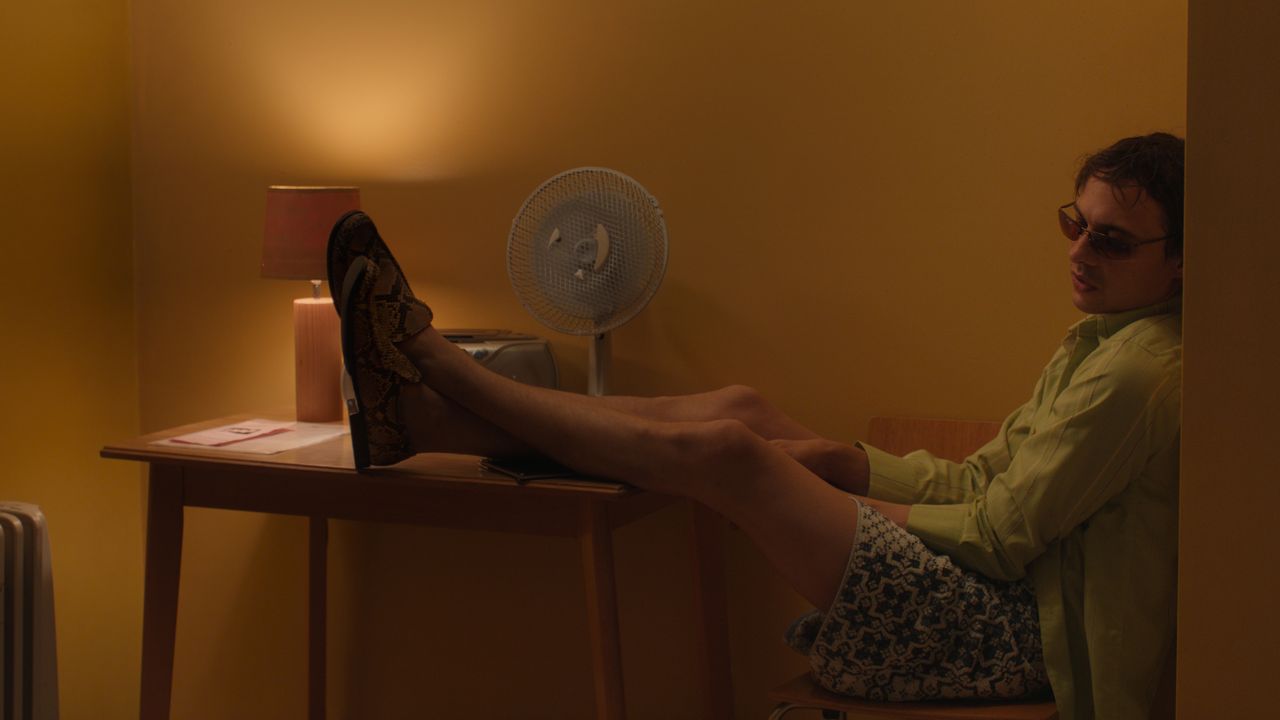There’s an ancient go-to gag about Hollywood ambition: an actor saying, “What I really want to do is direct.” It became a punchline for a reason—for
There’s an ancient go-to gag about Hollywood ambition: an actor saying, “What I really want to do is direct.” It became a punchline for a reason—for all the actors who have become brilliant filmmakers, just as many have crashed and burned when stepping behind the camera. The Cannes Film Festival is littered with such tales of woe, from the noxious hubris of Sean Penn (The Last Face) to the irksome pretension of Ryan Gosling (Lost River). And so I rolled my eyes—just a little!—when I saw that rising 28-year-old movie star Harris Dickinson would debut his first directorial effort, Urchin, on the Croisette this year.
I rolled them a bit harder when I read the film’s synopsis. Frank Dillane, son of Game of Thrones actor Stephen Dillane, stars as a London vagrant, scrambling about the city trying to hustle up money and lodging and some sense of purchase in life. Might this all be akin to the NYU students I’ve often seen wandering Tompkins Square Park in the East Village, taking photographs of unhoused people sleeping on benches—as if their leering camera was somehow conferring noble, artistic dignity upon these downtrodden people?
Dickinson is a fine actor with a proven track record of good taste—by my count, he’s only done one bad Hollywood YA cash-in—so perhaps it was rash to pre-judge his film. But that apprehension was there nonetheless, the niggling suspicion that yet another actor might reveal an unbecoming shallowness and vanity.
To my content relief, Urchin—which premiered here at Cannes in the Un Certain Regard sidebar on May 17—is the thoughtful, stylistically assured debut of a natural filmmaker. Dickinson, who wrote the film’s script and appears in a compact supporting role, wears some of his influences on his sleeve while binding them into something distinctly his. With Dillane’s invaluable assist, Urchin paints a melancholy and compelling portrait of someone lost in the fringes, a victim of an often indifferent system and of the elaborate wiring of his brain.
Dillane plays Mike, a man drifting from post-adolescence into true adulthood while living on the street. His halting movement and glazed-over eyes suggest that some kind of drug addiction has gripped him, but he is often lucid enough to reveal a keen, charming person struggling to stay upright. A nasty robbery lands Mike in prison for a few months. When he reemerges, he is sober and dedicated to the task of getting his life in order.
As the film unfolds, one expects Dickinson to hit the hoary narrative beats common in these stories. There will be a low, then the ascent to recovery, then a second-act setback, and then something approaching hope at the end. But Dickinson, placid and probing and sensitive in his filming, messes with that timeline just enough to keep Urchin surprising, unpredictable. He ventures into artsy abstraction, moments in which we glimpse the interior of Mike’s psyche, journeying into both the wilds and Edens of a mind at war with itself. Dickinson smartly fuses that surreality with a realism perhaps inspired by filmmakers like Sean Baker (there’s the youthful energy) and Mike Leigh (there’s the weary observation of life in all its plainness).
The film drifts alongside Mike as he makes brief connections with other people—mostly coworkers with whom he finds some solace and companionship. But he never finds any real refuge from the pressures and torments of his addiction, from the itchiness of his existence. Dillane, in a nuanced and keenly felt performance, keeps Mike in the liminal space between pitiable and frustrating, endearing us to him while not shying away from his heedlessness and selfishness. It is, in that way, a convincing and fair depiction of addiction—or, at least, one credible version of a condition widely varying in its symptoms.
Watching Urchin, one never feels the smarm of the slumming student artist. There is none of the overly mannered, crassly articulated grit that has plagued too many recent films about the lower class. (Look to billionaire heiress Nicola Peltz’s 2024 film Lola if you want some of that. Or, better yet, don’t.) There’s no condescension in Dickinson’s gaze; he proves a far more compassionate filmmaker than one might (unfairly) expect from a handsome, eminent 20-something. A few indulgent missteps into indie-movie cliché—teenage people waving sparklers in a parking lot to signify their carefree joie de vivre, for example—are not enough to blow the film off course. It’s awfully invigorating not only to savor a sturdy debut, but to eagerly look forward to what Dickinson might make next. Perhaps more aspiring actor-directors ought to spend some time in the Criterion closet.
This story is part of Awards Insider’s in-depth Cannes coverage, including first looks and exclusive interviews with some of the event’s biggest names. Stay tuned for more Cannes stories as well as a special full week of Little Gold Men podcast episodes, recorded live from the festival and publishing every day.
Listen to Vanity Fair’s Little Gold Men podcast now.

COMMENTS